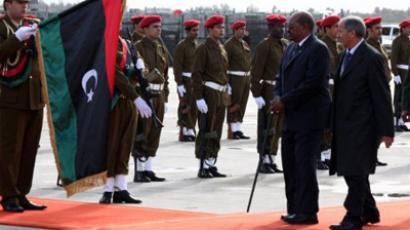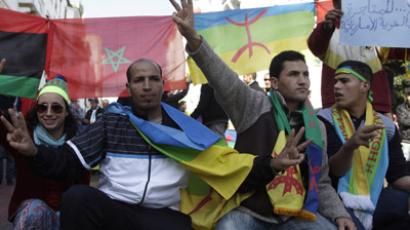Libyans reject ‘hijacked’ revolution?
Violent clashes between supporters of the new and old regimes have been seen in cities across Libya. The successful regrouping and attacks by former regime loyalists has raised fears that another civil war might take place in the country.
Fighters loyal to late Libyan leader Muammar Gaddafi have clashed with revolutionary forces in the former regime stronghold of Bani Walid on Monday, taking control of the city in the process. At least five NTC troops were killed and 30 others injured in the violence.There is a lot of disquiet in every corner of Libya at the moment, as investigative journalist Simon Assaf told RT.“The thing we have to remember about the Gaddafi regime or any kind of regime is that it isn’t simply about the people at the top,” Simon Assaf explained. “There are people, the supporters on the ground, low and mid-level officials and so on. And I think quite a few of them would have been thrown to the winds after the death [of Gaddafi].”Assaf believes that this group, “the new victims” of the revolution, represents a “certain section of population that now wants to find its voice.”“The NTC forces when they marched into Bani Walid would have had to face the local population,” he said. “Now it is the local population that seems to have thrown them out.” There is extreme discontent with what some people are describing as the “hijacked revolution,” Assaf says. And the process of hijacking was very “messy and brutal,” leaving many people seeking revenge, he added.“There was the total annihilation of Sirte, the attacks on areas considered to be loyal to the old regime,” Assaf explained. “So I think there is no question that there are many people who died under NATO bombs. I think there are quite a lot of acts of revenge taking place.”“The thing about revolutions is that they are not simply passive events,” he concluded. “There is a whole awakening of the population in the Middle East.”
Ali Alkasih, an eyewitness to NATO’s campaign in Libya told RT that life in Libya was better under Muammar Gaddafi’s regime but now the country is facing more corruption and violence against its own citizens.“We didn’t have these thugs in Libya. We didn’t have the killings taking place now in Libya. We didn’t have interference – we were an independent country.”














